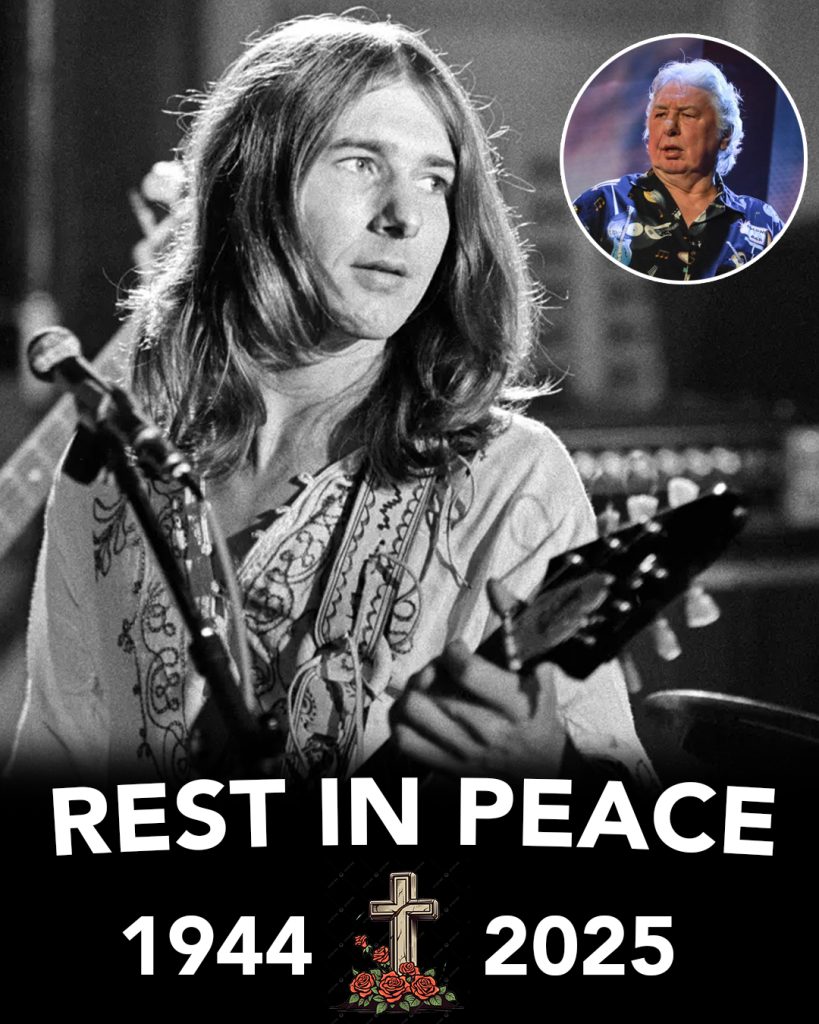Fans across the globe are mourning the passing of Mick Ralphs, the legendary British guitarist and songwriter who helped shape the sound of classic rock as a founding member of both Bad Company and Mott the Hoople. Ralphs died at the age of 81, as confirmed in an official statement released Monday on Bad Company’s website. Though the statement did not disclose additional details about his death, it marks a poignant end to a chapter in rock history, particularly for the countless fans who grew up listening to Ralphs’ distinctive guitar work.

Ralphs had faced significant health challenges in recent years. In 2016, just days after his final performance with Bad Company at London’s O2 Arena, he suffered a debilitating stroke that left him bedridden. Though he stayed out of the public eye in the years that followed, his influence on the rock world never faded. In fact, he was set to be inducted into the Rock & Roll Hall of Fame this November as part of Bad Company—a recognition that fans and critics alike felt was long overdue.
The announcement of his death has led to an outpouring of tributes from fellow musicians, fans, and admirers. Bad Company’s lead singer Paul Rodgers, who co-founded the band with Ralphs in 1973, shared a deeply emotional message: “Our Mick has passed, my heart just hit the ground. He has left us with exceptional songs and memories. He was my friend, my songwriting partner, an amazing and versatile guitarist who had the greatest sense of humor.”
Ralphs’ legacy is one of gritty, melodic guitar riffs and timeless rock anthems. His musical journey began in the late 1960s with Mott the Hoople, the glam-rock band that gained prominence thanks to the David Bowie-produced hit All the Young Dudes. But even before that, his songwriting talent had begun to emerge. One of his earliest and most enduring songs, Ready for Love, was originally recorded with Mott the Hoople. Ralphs later reworked the track with Bad Company for their self-titled 1974 debut album, giving it a new edge and broader appeal.
That debut album would become a milestone in classic rock, packed with powerhouse tracks made for FM radio. Among them was Can’t Get Enough, another Ralphs original that became one of the band’s most recognizable hits. A year later, Ralphs and Rodgers co-wrote Feel Like Makin’ Love, a sultry, slow-burning rock ballad that would go on to define the band’s sound and secure their place in music history.
In fact, much of Bad Company’s discography was tailor-made for arenas and radio airwaves. Their blend of blues-inspired rock and powerful performances perfectly matched the stadium-rock explosion of the 1970s. With Ralphs at the creative helm, Bad Company carved out a sound that was raw yet refined, accessible yet deeply soulful.
Born in the small village of Stoke Lacy in Herefordshire, England, Ralphs picked up the guitar as a teenager, inspired by American blues musicians. In 1966, he co-founded the Doc Thomas Group, a band that eventually evolved into Mott the Hoople. As the group embraced the glam-rock movement of the early ’70s, Ralphs found himself donning flashy clothes and taking part in elaborate stage performances. Though it brought the band fame, it didn’t sit well with him.
He often described the experience as uncomfortable, admitting in interviews that the over-the-top theatrics made him feel somewhat ridiculous. After five years with Mott the Hoople and shortly following their big break with Bowie, Ralphs decided it was time for a change. In 1973, he left the band and teamed up with Rodgers, who had just parted ways with Free. They were soon joined by drummer Simon Kirke, also from Free, and bassist Boz Burrell, formerly of King Crimson. Thus, Bad Company was born—a band that, despite its rough-sounding name, became a much more comfortable fit for Ralphs’ musical sensibilities.
Though he helped pen many of Bad Company’s most iconic songs, Ralphs never considered himself a superstar. He was a musician first, always more focused on the music than on fame or public image. In fact, he once expressed concern that fame might lead to creative complacency or even failure.
“I try to not be really aware of fame. I don’t want to believe my own publicity. Of course, I want acceptance. I want to be loved – but only because I believe in what I’m doing,” he said in a 1974 interview. “Money and trimmings can make you complacent. Ego can crumble, but a good band won’t.”
That grounded perspective may have been one of Ralphs’ greatest strengths. While others chased the spotlight, he kept his focus on the music, crafting songs with depth, emotion, and an unmistakable guitar sound that would come to define an era. His riffs were crisp and memorable, his solos soulful and perfectly timed. He didn’t just play guitar—he gave each note a voice, an energy, a soul.
Even after his stroke sidelined him from performing, his influence remained strong. Generations of musicians cite Ralphs as a key influence, and his songs continue to be played on radio stations, in films, and during concerts around the world. His style—clean, emotive, and always authentic—helped shape what we think of today as British rock.
Now, with his passing, fans and fellow artists alike are reflecting not only on his contributions to music, but on the man behind the music. A humble, humorous, and immensely gifted musician, Mick Ralphs leaves behind a catalog of songs that will continue to resonate for decades to come.
His life and work remind us that greatness doesn’t always come from chasing the spotlight. Sometimes, it comes from simply doing what you love, with authenticity and heart. Mick Ralphs did just that—and the world of rock music is richer because of it.





